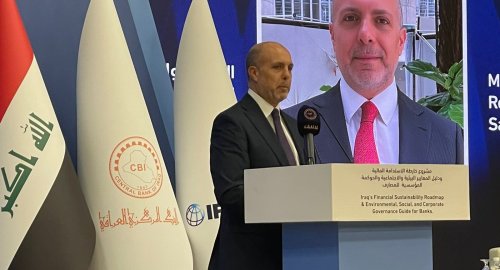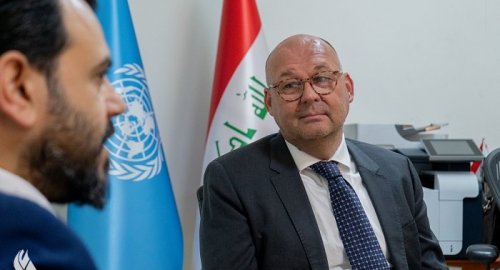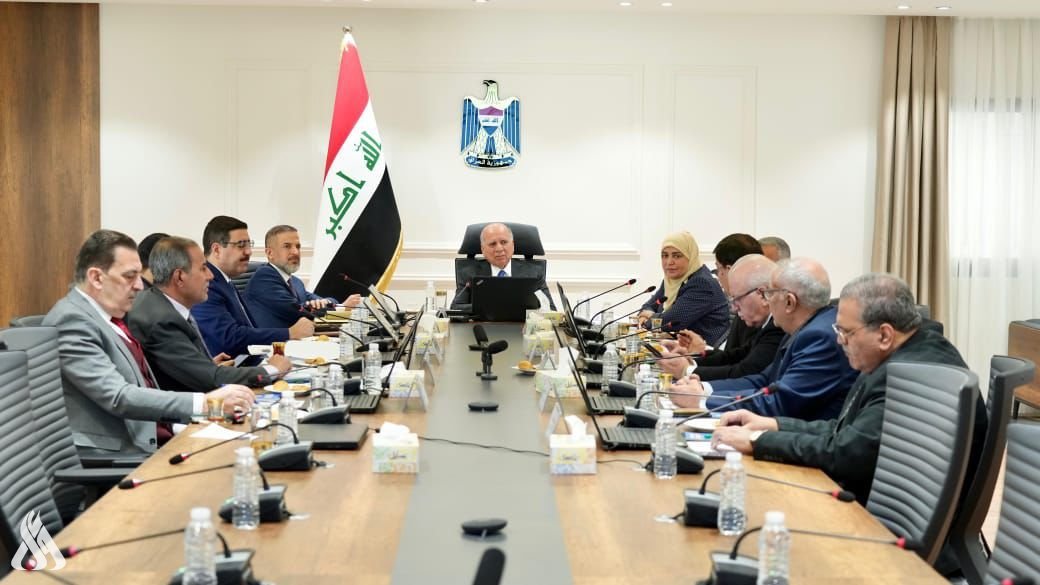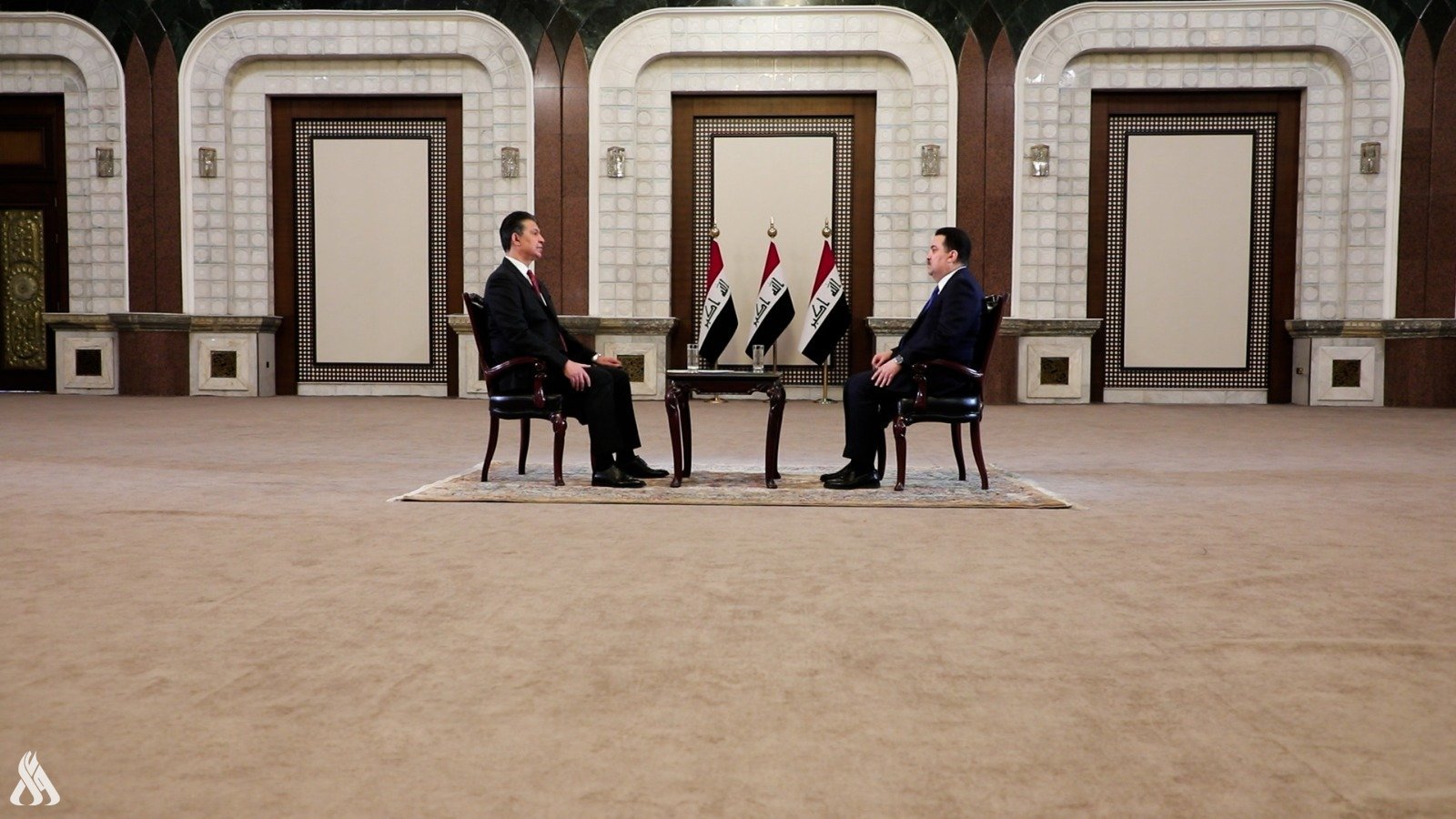
IFC: CBI is a Model for Strategies Supporting Banking Sector Development

Economy
- 23-09-2024, 13:30
Baghdad – INA
Fawaz Al-Balbisi, the Regional Director for Saudi Arabia, Lebanon, and Iraq at the International Finance Corporation (IFC), affirmed on Monday, that Iraq is among the first countries to adopt a comprehensive approach to governance and environmental and social accountability.
He highlighted that the Central Bank of Iraq serves as a model for developing strategies aimed at enhancing the banking sector.
During his speech at the launch of the Financial Sustainability Roadmap and Guide for Environmental, Social, and Corporate Governance Standards for banks, attended by an Iraqi News Agency (INA) reporter, Al-Balbisi stated, "Iraq has contributed justice and law to humanity, and it is no surprise that it is one of the first countries to embrace a complete approach to governance and environmental and social accountability."
He noted that this new achievement results from the strategic partnership between the IFC, the Central Bank of Iraq-CBI, and the Netherlands, alongside their collective efforts to develop an advanced Iraqi banking sector that contributes to a sustainable future for Iraq.
He emphasized that the achievements celebrated today mark a crucial step for the Iraqi banking sector toward establishing sound practices in environmental, social, and corporate governance standards that align with global norms.
"These standards are not merely a framework for celebration but represent a systematic approach that the banking sector must achieve," he added.
Al-Balbisi remarked that environmental and governance standards have transformed institutional environments and are now benchmarks for professional excellence, becoming essential for managing and mitigating risks, thereby ensuring financial sustainability and business prosperity.
He further noted the significant importance of this event as Iraq confronts challenges posed by climate change, which requires approximately $233 billion by 2040 to address the developmental gaps necessary for pursuing sustainable economic pathways.
Al-Balbisi stated, "Environmental and social responsibility and corporate governance are not only declarations of transparency, accountability, and justice but are also fundamental components of responsible investment strategies committed to sustainable practices and ethical standards in all financial and investment decisions."
He emphasized that the Iraqi banking sector plays a vital role in providing the necessary financing to meet national objectives in Iraq, underscoring the importance of the Central Bank's leadership under Ali Al-Alaq in achieving these goals.
He pointed out that as the banking, financial, and operational capabilities have evolved in recent years, this achievement complements other initiatives led by the Central Bank, the most recent of which was the launch of the National Strategy in May.
Al-Balbisi concluded by stating that the Central Bank exemplifies how to develop strategies that positively reflect on the external perception of the banking sector, making it a strong contributor to sustainable development in Iraq. He also expressed gratitude to the Dutch government for their support in achieving this milestone and to the teams at the Central Bank and the IFC, whose diligent efforts enabled the realization of this achievement.
Egypt announces payment of $38.7 billion of its debts
- International
- 09:58
Syria: Imposing a curfew in the city of Homs
- International
- 07:45
US Central Command: We killed ISIS terrorist leader Abu Yusuf in Syria
- International
- 24/12/20
Liverpool compete with Real Madrid to sign Olympique Lyonnais star
- Security
- 24/12/19
7 ISIS elements arrested in Kirkuk
- Security
- 24/12/20












